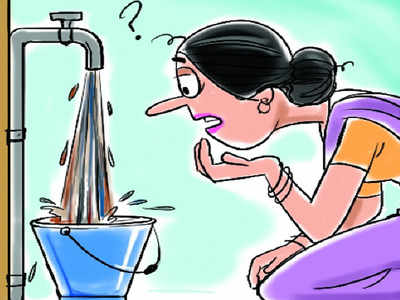The Times of India 04.08.2012
Arsenic test now a must for housing projects
KOLKATA: After decades of denial, Kolkata Municipal Corporation
(KMC) is going all out to tackle the arsenic threat. It will be now
mandatory for promoters in certain parts of the city to get groundwater
tested for arsenic before they can submit building plans. If the test
comes positive, KMC will not allow the project to go ahead.
The
rule applies to housing projects on EM Bypass and added areas such as
Dum Dum, Cossipore, Behala, Jadavpur and parts of Tollygunge. It was the
discovery of arsenic in hand-pumps on Ghulam Mohammed Shah Road and Prince Anwar Shah Road that KMC to take this unprecedented measure.
A 14-member task force was formed on Friday to tackle the threat in
areas where residents still depend on tube-wells. The team will meet
once a month, said Tarak Singh, the mayoral council member in charge of
groundwater.
According to the new rules, a promoter will have to
apply to the state water investigation directorate (SWID) to have the
groundwater tested at the proposed construction site before he can apply
for building plan sanction. If the test gives the all-clear, the KMC
will begin processing the application. “If the directorate gives a
no-objection certificate to the promoter after examining the
groundwater, we will refer it to the building department for approval,”
Singh said.
KMC has decided to conduct periodic checks on all
16,000 hand pumps across the city but water supply officials are
particularly worried about the arsenic threat in 9,020 privately owned
deep tube-wells. There are 439 other deep tube-wells that have the KMC’s
stamp. “We had no control over the installation of such tube-wells or
the quality of groundwater. Now, we want to bring all the tube-wells,
including the private ones, under our terms and conditions. We will
conduct periodic examination of groundwater at these places. If arsenic
is found at any such tube-well, we will seal it immediately,” the MMiC
said.
However, KMC is yet to seal the tube-well at Ashalata
Apartment at Bikramgarh, where arsenic was found well beyond the
permissible limits in separate tests conducted by KMC, SWID and the Pollution Control Board. The KMC water supply department will also charge the promoters for installation of deep tube wells, a civic official said.
Among those who attended the meeting on Friday were K J Nath, former director of All India Institute of Public Health and Hygiene, PCB chief engineer Tapas Gupta, PHE chief engineer Satya Deb Bhattacharya, G C Pati, regional director of Central Ground Water Board, and S Das, a scientist of the water investigation directorate.

